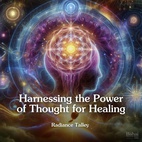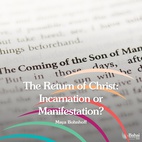The views expressed in our content reflect individual perspectives and do not represent the authoritative views of the Baha'i Faith.
How do you feel about capital punishment?
Most nations around the world, including the 47 states of the European Union, have abolished capital punishment completely or stopped its use. Within the past decade, the United Nations General Assembly adopted several non-binding resolutions calling for a global moratorium on executions, leading toward eventual abolition of the practice. Today, just thirty-six of the world’s 196 countries still actively utilize capital punishment, including four of the most populous: China, India, Indonesia and the United States. That means more than 60% of the world’s people live in places where executions occur.
You’ve heard the arguments both for and against capital punishment, and most of them make good solid sense. So how do we weigh them and decide whether to continue, sanction or forbid this most severe sentence for the most extreme crimes?
Proponents of capital punishment demand that the penalty should fit the crime—the ultimate payment for the ultimate transgression. Families, they assert, deserve to feel a high level of retribution for having their lives irrevocably damaged by the loss of their loved ones. Some even cite Bible verses in order to support their cause.
Baha’is believe that criminal law, however, must evolve, just as religion and the needs of the age evolve:
Moses lived in the wilderness of Sinai where crime necessitated direct punishment. There were no penitentiaries or penalties of imprisonment. Therefore, according to the exigency of the time and place it was a law of God that an eye should be given for an eye and a tooth for a tooth. It would not be practicable to enforce this law at the present time — for instance, to blind a man who accidentally blinded you. In the Torah there are many commands concerning the punishment of a murderer. It would not be allowable or possible to carry out these ordinances today. Human conditions and exigencies are such that even the question of capital punishment — the one penalty which most nations have continued to enforce for murder — is now under discussion by wise men who are debating its advisability. In fact, laws for the ordinary conditions of life are only valid temporarily. The exigencies of the time of Moses justified cutting off a man’s hand for theft, but such a penalty is not allowable now. Time changes conditions, and laws change to suit conditions. We must remember that these changing laws are not the essentials; they are the accidentals of religion. – Abdu’l-Baha, The Promulgation of Universal Peace, pp. 365-366.
Some oppose the death penalty on moral grounds, believing no person and no government has the right to take a life for any possible reason:
[The death penalty]…violates our belief in the human capacity for change… [It] powerfully reinforces the idea that killing can be a proper way of responding to those who have wronged us. We do not believe that reinforcement of that idea can lead to healthier and safer communities. – Friends Committee on National Legislation
Other opponents point out a pattern of systemic bias in the justice systems of many countries, noting as one example the disproportionate rate of death penalty verdicts for poor black males and other minorities in the U.S. The United States Bureau of Justice Statistics reported:
Of prisoners under sentence of death at year end 2013, 56% were white and 42% were black. The 389 Hispanic inmates under sentence of death accounted for 14% of inmates with a known ethnicity. Ninety-eight percent of inmates under sentence of death were male, and 2% were female. The race and sex of inmates under sentence of death has remained relatively stable since 2000. – Capital Punishment, 2013 Statistical Tables, Tracy L. Snell, BJS Statistician
The fact that the U.S. Justice Department identifies 42% of death row inmates as black—while only 12% of the U.S. population is black, and the majority of murders are committed by people of other races—demonstrates the alarmingly disproportionate application of the death penalty. Also, the non-partisan U.S. General Accounting Office has found “a pattern of evidence indicating racial disparities in the charging, sentencing, and imposition of the death penalty.” Other points of contention include: the enormous costs incurred due to a lengthy and multi-layered appeals process in death penalty cases; the fact that few wealthy people ever face the death penalty; the fact that innocent people do end up on death row and have been executed; and the execution of mentally ill convicts.
All of these issues give people pause, and can easily convince concerned citizens to take exception to the death penalty and advocate its abolition. On the other hand, the heinous crimes against helpless victims make many cry out for justice. In the second half of this two-part series, let’s consider the unique Baha’i view of this controversial subject.

















Comments
Sign in or create an account
Continue with Facebookor